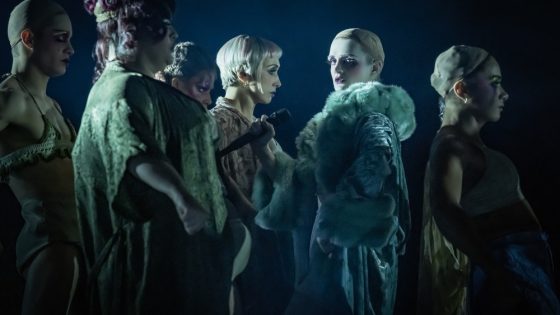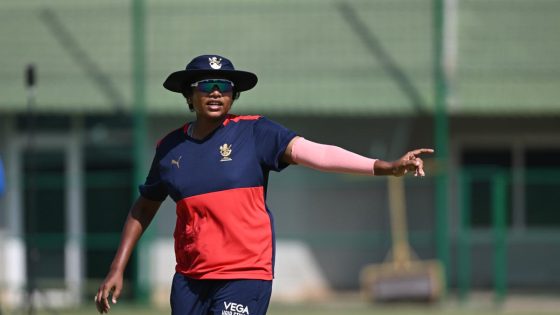Voice actors are finding an exciting and burgeoning avenue for jobs within the gaming industry, and this trend is gaining traction even in the diverse landscape of Malaysia.
As virtual worlds expand and narratives become increasingly immersive, the demand for skilled and versatile voices has propelled local voice actors into the global gaming scene.
Malaysian voice actors Steven Bones, Azman Zulkiply and Chan Su Ling, as well as stage and film actor Tung Jit Yang, share how they have quite seamlessly transitioned into the gaming world by using their voice talents, bringing to life characters that have captivated players everywhere.
A whole new world
For over a decade now, 39-year-old Steven Bones has been lending his distinctive voice to numerous commercials, corporate videos and animations within the Malaysian market.
Steven Bones’ venture into the gaming world was a pleasantly unexpected one when he became one of the main characters in local gaming studio Metronomik’s action-adventure game, No Straight Roads (NSR).
“I was quite surprised that I got cast as Zuke, one of two protagonists in the game. Initially, I thought it would be a dinky little game on mobile or PC that no one would ever find… after all, Malaysia was just starting out in the gaming arena. When I first got the gig, I was shown some of the game in its early stages… just grey boxes and grey figures,” Steven Bones laughs.
“It was so janky, and from the back end at that stage, the game didn’t look like it would amount to much,” Steven Bones says.
Voicing alongside Su Ling Chan, a colleague and peer, their recording sessions took a unique approach – unlike what they were used to in commercials – fostering on-screen chemistry as they portrayed the characters Mayday and Zuke.
Steven Bones’s expectations were modest, assuming it would be just a small-scale game. But when NSR finally hit the shelves, he was in for a big surprise.
“I got wind that it was on PS, and I couldn’t believe it! On the drop day, I bought the digital copy, and I remember that from the moment I turned it on, I was like, ‘wow!’ The music was amazing, the artwork was great.
“Even the menu screen had some very nice touches to it. When I got into the actual game tutorial, I remember moving the controller and thinking how very polished everything was. This was way beyond what I had initially expected. I thoroughly enjoyed the game!”
A gamer himself, Steven Bones says he likes adventure games and platformers. “Things like God Of War, Assassin’s Creed, and Horizon Zero Dawn all the way down to games like Celeste. My favourite game till today which I constantly revisit is Cuphead.
Steven Bones’ journey into voice acting began in his early 20s when, after a stint as a singer (he graduated from KL’s International College of Music), he discovered his knack for voiceovers.
His initiation into the industry saw him trying his hand at newscasting, which, though initially challenging, eventually paved the way for a successful voice-acting career.
Equipped with a home studio in Shah Alam, Selangor, Steven Bones has today crafted a niche for himself and emphasises the importance of versatility and continuous learning in the field. He is also the current President of the Voice Guild of Malaysia, an organisation that represents and supports professional voice-over artists working in the recorded media sector.
Steven Bones’ advice for those who’d like to try their hand at voice acting?
“Be versatile with what you have. At the end of the day, no two people sound alike, so you can definitely create a niche for yourself.”
He adds that if you want to be a voice actor, you’ll have to gain an understanding of the various projects that you’ll be performing in – whether it’s a commercial for TV, radio or the Web; whether it’s a corporate video, animation or game.
“Practise reading everything, listen to a lot of different stuff, and record yourself so you know what you sound like. Don’t be afraid of rejection – it’s just part and parcel of the job. Even after you’ve been in the industry for a long time, there may still be some clients who just won’t choose your voice.”
In addition to his gaming achievements, Steven Bones’ portfolio boasts a range of roles, from voicing Kumar in Bola Kampung: The Movie to contributing to the English dub of Ejen Ali on Netflix.
As he reflects on his multifaceted journey, Steven Bones offers his three golden rules of voice acting: punctuality, competency and kindness.
While not a millionaire, the father of two attests to the rewarding nature of the profession, where camaraderie, collaboration and mutual growth define the community of Malaysian voice actors he proudly calls his colleagues.
Growing up on cartoons
Kuala Lumpur-based artist Azman Zulkiply is a seasoned professional well-known for his exceptional work in both English and Malay commercials, animations and video games.
His journey into the world of voice acting began with a childhood passion for mimicking cartoon characters from Warner Brothers, Disney and Cartoon Network.
Azman, 38, shares, “With a significant seven-year age gap between my brothers and me, much of my childhood was spent by myself, engrossed in TV shows. I would mimic the characters I watched, then try to impress my friends.”
Azman’s formal foray into voice acting occurred during his university years at Multimedia University. While majoring in film and animation, he discovered the need to lend his voice to characters for his final year project, and this fuelled his love for the craft, setting the stage for an exciting career.
The gaming world welcomed Azman in 2014 when he received an invitation from a Chinese client to voice a couple of characters in a mobile game and embraced the challenge.
“The Mandarin version of the game had already been made. So, all I needed to do was try my best to match the voice and vibe of the existing game.
“The budget was so tight that it was basically me and my friend Yvonne Chong voicing all the parts! I said yes, mainly because I had never done something like this before,” he said, adding that the experience then led to subsequent projects, including Contra Returns and NSR.
In NSR, Azman voiced two characters, DJ Zam and Captain Torpedo. The game was released during the pandemic and prompted a global shift towards voice actors.
“Many of us had adapted and were already working from home,” Azman says. “This eventually gave us all new opportunities and connections in the global industry.”
Another significant gaming project, Singapore studio General Interactive Co’s cyber noir point-and-click adventure Chinatown Detective Agency, came through a recommendation from a colleague, Su Ling Chan, highlighting the power of networking in the voice acting community.
“She recommended a whole bunch of us because we were able to work from home, and I ended up voicing several characters, including policemen, detectives and a character called Sammy.”
Wo Long: Fallen Dynasty, a historical fantasy action role-playing video game by Japanese game developer Team Ninja, holds a special place in Azman’s heart, as he feels it is his most significant involvement in a video game to date. His journey with Wo Long began over a decade ago, when an inquiry on Twitter led to shortlisting and eventual casting.
“It was in 2022 that I saw a call for voice actors of Asian descent and responded, only to find out I was shortlisted a year later. I ultimately got the role, and all the recording was done remotely, from home, with a studio based in New York,” says Azman.
“The engineer would show me clips from the game, and what I had to do were non-verbal expressions or walla sound effects – Huh, Ah! Oof! Ugh! Grr – all the sounds of someone jumping and landing, punching and kicking, using their superpowers or even dying. At that time, I didn’t even know what game I was recording for. It was just two hours of recording.”
Much to his surprise, when Wo Long: Fallen Dynasty was released, Azman’s fiancee put two and two together and realised that he had in fact been a part of that very project!
“I was one of the voices for the character that you control in this game, the protagonist or ‘Nameless Militia Soldier!’ That blew my mind!”
He shares that his entry into Zombie Soup by local indie game studio AeonSparx Interactive marks another way through which voice actors secure roles, which is through recommendations and collaborations with casting agencies.
“If you have a good relationship with a local studio, they would have your voice sample, and so when clients approach them, they would recommend you.”
So many characters to play
Since embarking on her voice acting journey in 1999, Su Ling Chan has crafted a captivating career, immersing herself in the ever-evolving world of character-driven narratives.
Her debut in the realm of voice acting unfolded during a telecommunications commercial alongside the late, great Jit Murad, a pivotal moment that crystallised her passion for the craft.
However, it wasn’t until 2012 that Chan ventured into gaming, lending her voice to the Malaysian point-and-click game, Hoodwink, by E-One Productions, in which she brought the quest-giving NPC Saffron to life.
Chan’s next major gaming role materialised eight years later, in 2020, with Metronomik’s inaugural game, NSR, becoming a milestone in her gaming portfolio as she voiced the lead character, Mayday.
“Then the pandemic hit, and I started pursuing remote work since all of the studios in Malaysia were closed during the MCO,” Chan, 40, says.
“I invested in building a high-quality studio in my home. And I now have a Los Angeles agent giving me access to a lot more remote work,” Chan happily shares.
Since building her studio, Chan has voiced in numerous overseas video games, including the current No 1 game on the App Store and Google Play Store, Honkai Star Rail, as the cute healer Bailu.
“I’m also Cabernet in Path To Nowhere, Nissa in Dragonheir: Silent Gods, Deadsuit in Ghost Song, Onna-Musha in Conqueror’s Blade, and Tiger Lily in Chinatown Detective Agency,” she rattles off her long list of projects.
Mobile games have become a particular source of joy for Chan, aligning her personal gaming preferences with her professional endeavours.
Expressing a desire to voice more playable characters in mobile games such as Genshin Impact, Cookie Run Kingdom, Arknights, Fire Emblem Heroes and Nikke, Chan’s versatility shines as she navigates through different tones and styles.
In the intricate world of video games, where full scripts are a rarity, she emphasises the significance of delving into a character’s personality and backstory.
“For video games, most of the time we get an Excel sheet with our lines. Some developers give the full scene, but most just give you your character’s lines without the full context of the scene.
“So knowing your character is extremely important, and figuring out how they would say those lines becomes paramount. I like to jot down everything and anything I know about the character, especially their personality and backstory.
“Sometimes, due to the non-disclosure agreement, even the actors don’t get the full backstory, so it can be tough!”
Chan acknowledges the pivotal role of the voice director, who becomes a trusted collaborator, helping the voice actor bring her characters to life.
She says: “Most times in a session, the voice director is extremely important because they set the tone and give context to the lines. They have the full picture of the scene, so for video game work, you have to really trust the voice director and collaborate with them to figure out the scene.”
All the world’s a stage
Immersing himself in the multifaceted world of acting, theatre director/educator and performer Tung Jit Yang, 34, seamlessly translated his craft into a captivating performance for the mobile phone game Simulacra 3 by Kaigan Games.
Unlike the voice actors above, Tung was called to act out whole scenes for the camera in his role as Paul Castillo, a paranoiac.
This role came about because of an earlier collaboration with Kaigan’s game designer, Jeremy Ooi, in the comedy sketch indecinelive! at KLPac in 2018, directed by Kelvin Wong. When Ooi was later looking for actors for his gaming venture, he approached Tung with a certain character in mind.
The casting process involved an audition where Tung, known for his theatrical prowess, donned costumes and utilised props, injecting a theatrical flair into the online audition process (because it was during the pandemic).
Reflecting on the transition from theatre and film to gaming, Tung says there are numerous parallels. In Simulacra, the player unlocks scenes featuring live actors, resembling film sequences and Tung finds that the fundamental principles of concentration and adaptation remain consistent whether you’re acting for film, stage or games.
The roots of his performance philosophy lie in the notion of making the invisible visible. Regardless of the medium – be it theatre, film, or games – the core objective remains consistent: to reveal the intricacies of the character and story to the audience.
With over a decade’s worth of experience, Tung’s journey in the performing arts is marked by significant milestones, including being a graduate of NYU’s Tisch School of the Arts, serving as director-in-residence at The Actors Studio Malaysia at KLPac, and artist-in-residence at theatrethreesixty.
When it comes to character development, he believes in providing directors with a spectrum of takes, infusing varied dimensions and interpretations into each performance.
This approach allows him to explore different facets of a character, injecting fresh perspectives into the drama of the scene and allowing the character’s essence to shine through.
“In Simulacra 3, for me, character development started off with figuring out the costume and talking to Jeremy about the character. My character Paul had messy hair and lots of documents all over the place in his apartment. He was a bit of a chaotic researcher who was on a wild goose chase,” shares Tung, offering insights into his collaborative process with the game designer in shaping the character.
Expressing his enthusiasm for delving into gaming, Tung acknowledges the rarity of such opportunities for actors.
He says: “I would really love to try other game characters. As I play computer games (when I have the time), it would be great to further work in this field.”
Source Agencies












